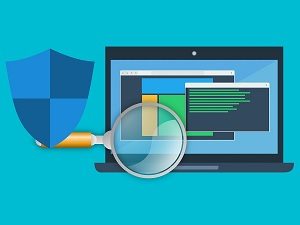Authored by: Bryan Lachapelle, President & CEO
 It's easy to think cybersecurity only belongs to the IT team. After all, they’re the ones who install antivirus software, run updates, and keep the firewalls strong. But even the best technology can’t catch every threat. That’s where people come in.
It's easy to think cybersecurity only belongs to the IT team. After all, they’re the ones who install antivirus software, run updates, and keep the firewalls strong. But even the best technology can’t catch every threat. That’s where people come in.
A “human firewall” is a way of describing everyday staff who are trained to spot danger. These are the folks who know how to recognize phishing emails, avoid social engineering tricks, and follow safe habits when handling data. They may not wear capes, but their choices protect the whole organization.
Think of it this way. A traditional firewall filters what comes in and goes out of the network. It lets good information through and blocks the bad stuff. But it can’t tell if someone is being tricked into giving away a password. That’s something only a person can sense. And that’s what makes the human firewall so important.
Every smart choice adds strength to that firewall. Whether it’s pausing before clicking a link or double-checking a strange request, each action builds protection. Cyber attackers know that people are the easiest way in. That’s why many attacks don’t start with code. They start with a click.
Mistakes happen. That’s human. But with the right habits, those mistakes don’t have to turn into disasters. A strong human firewall doesn’t mean being perfect. It means being prepared.
So, what does a strong human firewall look like? It looks like employees who stay alert. It looks like a team that slows down, reads carefully, and speaks up when something feels off. It’s a culture where safety is a shared job, not just an IT task.
To build one, start small. Take time to:
-
Pause before clicking links or opening attachments.
-
Use the SLAM method: check the Sender, Links, Attachments, and Message.
-
Confirm unusual requests with a trusted contact.
-
Follow the company’s cybersecurity and data use guidelines.
When something feels strange - whether it’s a message, a file, or a phone call - report it. Getting a second opinion is never a weakness. In fact, teamwork is one of the strongest tools in cybersecurity.
Training matters too. Regular courses and phishing simulations help people stay sharp. Think of cybersecurity like muscle memory. The more it's practiced, the stronger it becomes.
Cybercriminals rely on quick clicks and fast reactions. But a thoughtful pause can stop them in their tracks. With good habits and a little awareness, the human firewall can be the strongest defense of all.



